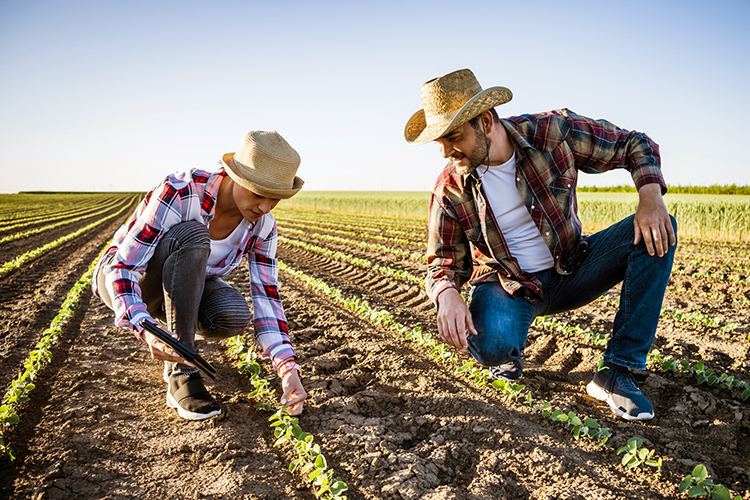
Sometimes, a gut instinct is all you need to try something new. Other times, it may be cautious optimism or interest that gives you the push to make a change.
But many times, as they say, seeing is believing.
In the dairy world, farmers do this all the time. They visit other farms before building a new barn, talk to other breeders about cow families, or even gauge harvest progress compared to their neighbors. There’s nothing quite as valuable as learning from your peers because it provides practical context for decisions you might be making.
“We know farmers learn best from each other,” said Alissa White of the American Farmland Trust in a recent webinar. When they are considering making a change, particularly a large one such as implementing conservation practices, there may be technical assistance and financial incentives available, but the missing component is often peer learning.
Peer learning is many times the key ingredient for a farm to make a change. Seeing how other farmers implement something shows how the practice fits into a farm and helps a person test things on their own farm.
White, the organization’s senior manager for climate and agriculture, described research she worked on that showed farmers were five to 20 times more likely to have implemented tillage practices if they participated in a farmer-to-farmer learning event on the topic. In another study in a different part of the country, 71% of nearly 700 farmers who participated in a peer learning network said they adopted conservation practices because of it.
Hearing from fellow farmers who have found success can inspire others while accelerating learning, problem solving, and collaboration, she continued.
There are many ways and groups in which this education can happen formally and informally. A bill was introduced in the U.S. Senate earlier this year that would help provide support for these types of learning events to occur. Specifically, the Natural Resources Conservation Service would be able to enter into cooperative agreements with farmer-to-farmer organizations to help fund things like peer groups and discussions.
Consider how you gain new information for your business. Are you a member of a local farm or dairy group where you can ask questions of your peers? Are there other local farmers doing things you may want to try on your farm? What can you learn from hearing others’ stories?
Niche markets can be so valuable to a farm’s success, and businesses are always looking for ways to differentiate themselves. Still, that doesn’t mean there aren’t pieces of information to be gained from those around us. Finding what works best for your farm might be as simple as asking the right questions — chances are that someone’s had the same problem and figured out a way to solve it.
To comment, email your remarks to intel@hoards.com.
(c) Hoard's Dairyman Intel 2023
October 16, 2023








